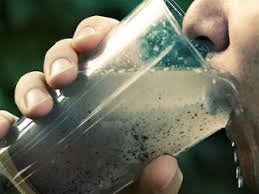AND
Warmer weather brings with it the opportunity to enjoy the outdoors and participate in those outside activities that the colder months prevent. While the warm weather is all good, spending long periods of time outdoors increases the risk for certain summer ailments. Now, you know we have you covered. Let’s talk about some of the more common summertime ailments and how they can be prevented?
#1). SUNBURN:

Probably the most ubiquitous summer ailment, sunburns occur when one is over-exposed to the sun and sunscreen is not properly used. Symptoms of sunburn include intense redness, skin blisters and skin peeling. In essence, a sunburn is your skin’s response to extreme UV damage and the telltale redness is caused by extra blood in the small vessels of your skin. Many people don’t know that when a sunburn occurs, the genetic material in your skin cells is often irreparably damaged, which can lead to skin cancer.
Sun damage is, however, fairly easy to prevent and proper protection is the key. So, how do you protect your skin?
- Use sunscreen, at least spf-50
- If spending time outdoors in the sun, sunscreen should be reapplied every two hours.
- Even in warm weather, keep skin covered (sunhats, long sleeves, umbrellas)
- Avoid direct sunlight during the hottest part of the day (12pm-4pm).
#2). LYME DISEASE:

Caused by the bite of infected ticks, Lyme disease is common in places with dense vegetation including the forest, riverbanks, and overgrown backyards. A tick will usually attach itself to the armpits, groin, or head where they may feed for up to 10 days. While most tick bites are harmless, some can transmit Lyme disease. Symptoms of a tick bite include pain or swelling, a rash, a burning sensation, or blistering. Symptoms of Lyme disease include a large bull’s eye rash, joint stiffness, headache, nausea, and generalize weakness.
Thankfully Lyme prevention is quite simple:
- If visiting an area where ticks are common, keep as much skin covered as possible by wearing long sleeves, long pants, shoes, and socks.
- Avoid walking off of the beaten path by staying on trails, in the center.
- Use a good tick repellent, easily purchased where mosquito repellant is sold. Consider treating your skin and clothing with a repellant.
- Finally, make sure to shower within two hours of being outdoors.
#3). HEAT STROKE:

No matter what you are doing outdoors, if you are not careful, heat stroke can creep up quickly. Symptoms of heat stroke include confusion, agitation, disorientation, and an absence of sweating. While the body is normally able to control its temperature naturally, through metabolism and sweating, when heat stroke occurs, this normal regulation doesn’t occur.
Fortunately, heat stroke prevention is simple:
- Staying properly hydrated by drinking a minimum of 80 oz of water daily.
- Avoid strenuous physical activity on extreme heat days.
- Avoid alcohol and caffeine when outdoors.
- Take frequent breaks to allow your body to rest and recoup.
4). FOOD POISONING:

Summer is the season of picnics and outdoor parties, and that means it’s also the season of foodborne illness. The most common, food poisoning, affects 48 million people each year, according to the CDC. Contamination from bacteria, viruses, and parasites (or their toxins) is the main way that people get sick. Contamination can occur at any point during food production or if food is not stored, handled, or cooked properly.
There are ways to avoid food poisoning, however:
- When cooking at home, wash your hands, utensils, and food surfaces often.
- Keep raw foods and ready to eat foods separated.
- Make sure foods are cooked to correct temperatures, and be sure to thaw, chill, and heat foods properly.
- If a served food needs to stay at a certain temperature, take every precaution to ensure that it stays at that temperature. And when in doubt, avoid.
5). WATERBORNE DISEASES:
Whether it’s a beach trip, a drive to the lake, or a quick dip in the pond behind your house, a quick way to escape the oppressive summer heat is a nice swim. However, there are certain waterborne diseases that appear only during the summer, in swimming pools, freshwater bodies and in stagnant water that roasts in the sun.
Prevention of waterborne illness can be done effectively including:
- Never swallow the water (pool or natural body of water).
- Shower before and after swimming.
- Do not swim after it has rained, as rain can wash contaminated items into the water.
- Don’t swim at locations where discharge pipes can be seen.
- Avoid swimming altogether if you see a blue-green algal bloom.
- While some bacteria can resist even the most chlorinated of pools, frequent cleaning as well as keeping pets out of pools can go a long way in preventing issues.
Summer may be the best time of the year, but dangers potentially lurk around every corner. Educate yourself and those you love on what those are and how to prevent them, and you can all enjoy a magical summer.









 May 19, 2018
May 19, 2018 


 October 26, 2020
October 26, 2020 
